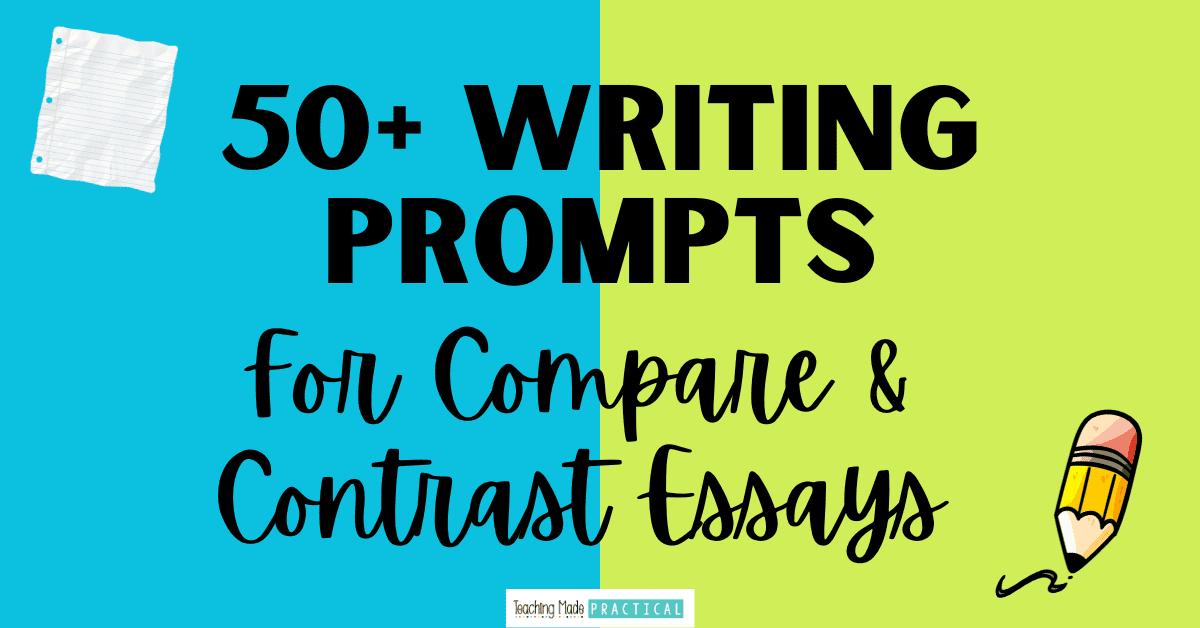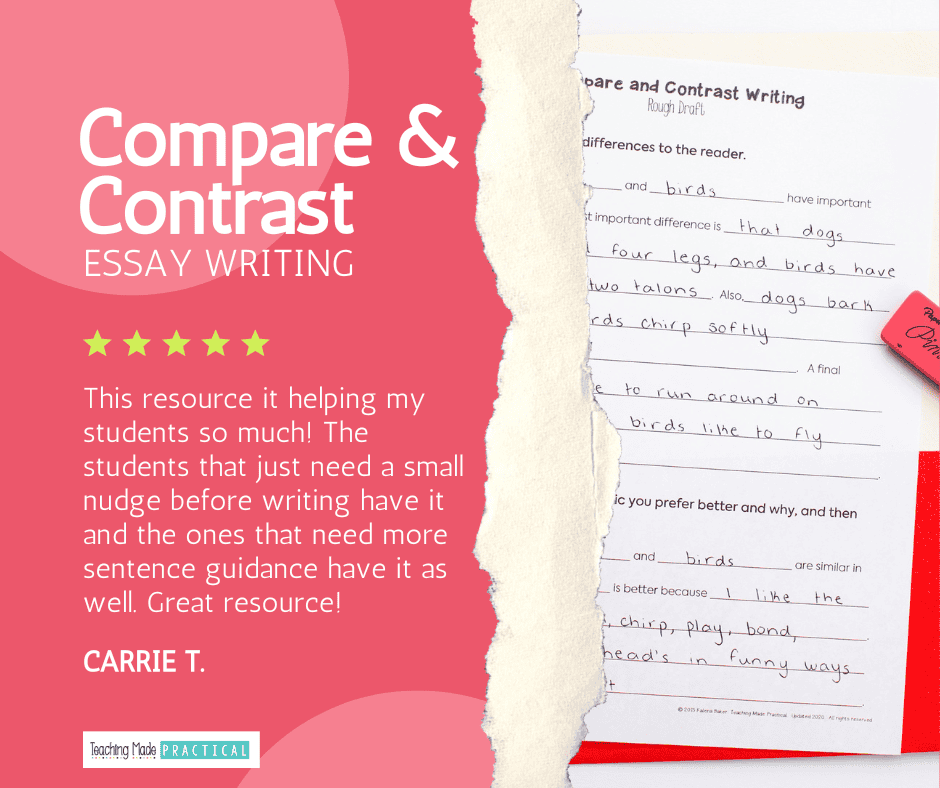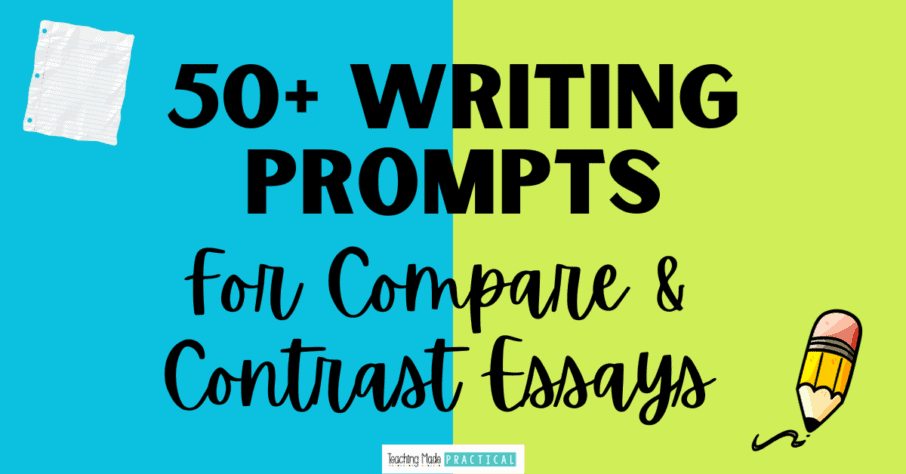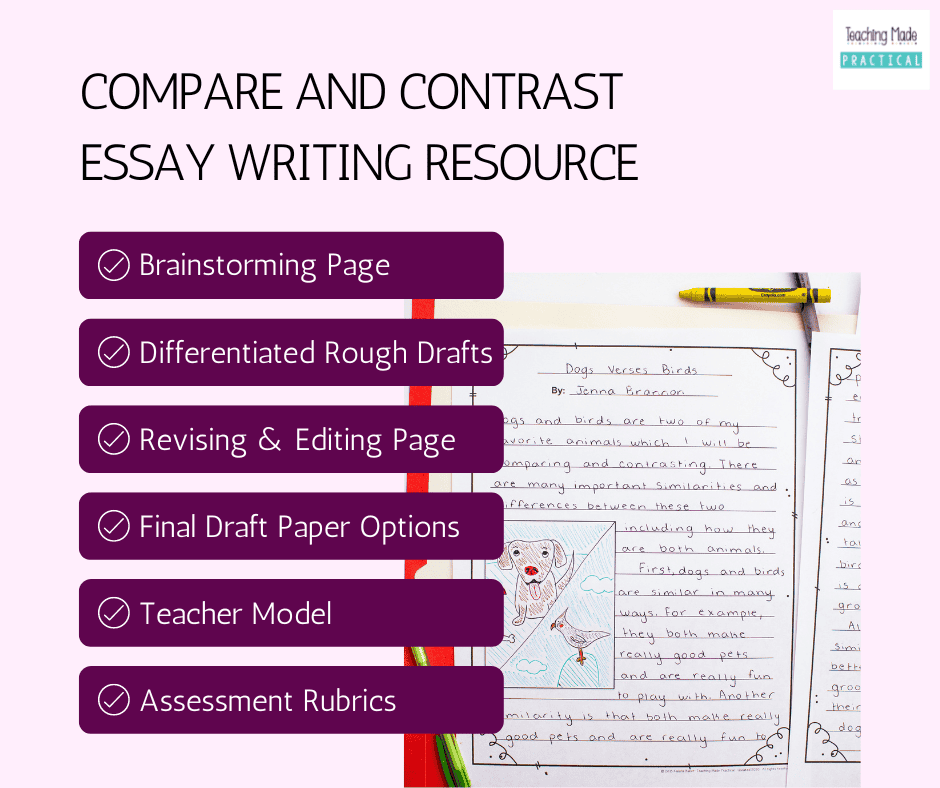
The compare and contrast writing prompt ideas below will help keep your 3rd, 4th, and 5th grade students engaged with essay writing. Topic ideas for comparing and contrasting are endless, but some prompts appeal to upper elementary students more than others.
Below, you'll find general writing prompt ideas that can be used at any time and do not require much additional background knowledge outside of what your students already know. There are also writing prompt ideas to help you integrate compare and contrast essay writing with ELA, social studies, science, and math topics.
If your students are still struggling with compare and contrast writing, then these compare and contrast writing tips and paragraph frames can help provide scaffolding.
1. General Compare and Contrast Writing Prompts
The compare and contrast writing prompts below will work for any 3rd, 4th, or 5th grade student - they most likely already have the background knowledge required to write on these topics!
- yourself vs. a friend (use these tips for helping students interview a friend)
- last school year vs. this school year
- movie vs. video games
- being a kid vs. being an adult
- cats vs. dogs
- handwriting vs. typing
- driving vs. walking
- going to music vs. PE
- Mondays vs. Fridays
- luck vs. working hard
- writing a letter vs. writing an email
- phones vs computers
- compare two classroom procedures
- compare two classroom jobs
- compare two superheroes
- compare two favorite movies
- compare two sports
- compare two favorite foods

2. Compare and Contrast ELA Topics
Students can practice writing about reading with these compare and contrast writing prompts that focus on ELA skills!
- compare two different books
- compare two main characters
- compare two settings from a book
- compare yourself to a character from a book
- compare two different character traits
- compare author's purposes - like persuading vs. informing
- compare two different text features
- compare fiction and nonfiction
- compare two different forms of poetry (like haiku and limericks)
- compare two versions of the same fairy tale (like these Cinderella stories)
- compare two genres (like fables vs tall tales)
- compare two types of figurative language
- compare fact and opinion
Compare and Contrast Social Studies Topics
Social studies lends itself well to writing. Use the writing prompts below as inspiration - then have your upper elementary students write a compare and contrast essay based on a topic your class is currently studying!
- compare two holidays (like Halloween and dia de Los Muertos)
- compare yourself to a famous person from history
- compare two famous people
- compare Benjamin Franklin and Thomas Edison (use this freebie for information)
- compare two landforms - like peninsulas and islands
- compare two states
- compare two American symbols (like Mt. Rushmore and the Lincoln Memorial)
- compare two Presidents
- urban vs. rural
- needs vs. wants
- Constitution vs. Declaration of Independence
Compare and Contrast Science Topics
While hands on science activities and experiments are more engaging, writing about science is a great way for students to demonstrate what they have learned on different science topics.
- compare two biomes
- compare two animals
- compare two different animal life cycles
- compare two different animal adaptations
- compare two different simple machines
- compare two planets
- compare two natural disasters
- physical vs. chemical changes
- living vs. nonliving
- vertebrates vs. invertebrates
- weather vs. climate
- solids vs. liquids
- fruits vs. vegetables
5. Compare and Contrast Writing Prompts to Integrate Math
Writing about math might be a challenge for students - they must thoroughly grasp the related vocabulary. If you have students who hate both math and writing, then this task might be extra frustrating for them. However, it is a great way to assess how well your students are understanding math skills!
- compare two differents shapes (like parallelograms and trapezoids)
- fractions vs. whole numbers
- area vs. perimeter
- coins vs. bills
- addition vs. subtraction
- multiplication vs. division
- using math in the real world vs. in the classroom
- estimation vs. exact answers
- 2d vs. 3d shapes
Want This Constructed Response Freebie?



